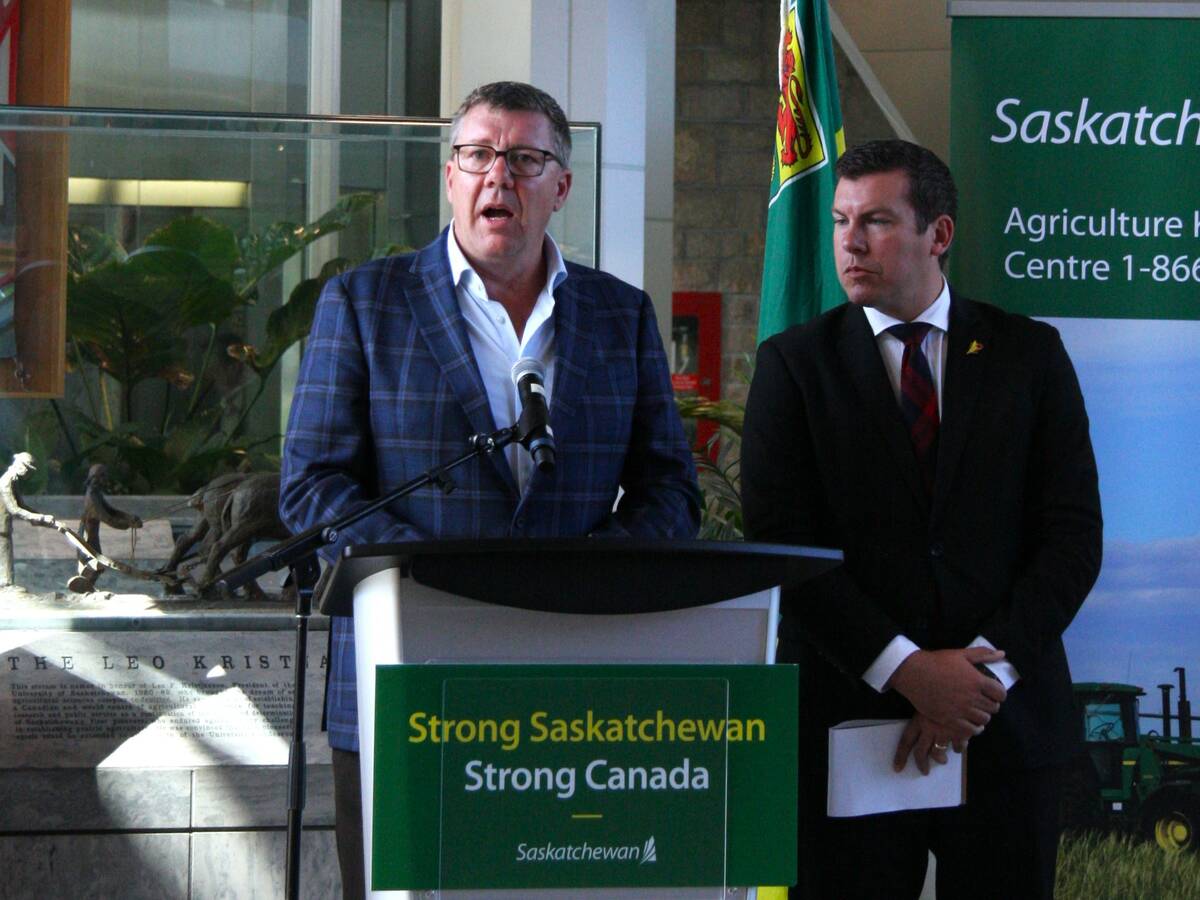(Reuters) — A plan by California environmental officials to list a commonly used herbicide as cancer-causing should be withdrawn, Monsanto has told state regulators.
The company said the state’s actions could be considered illegal because they are not considering valid scientific evidence.
The formal comments were filed by Monsanto with the state’s Office of Environmental Health Hazard Assessment (OEHHA) on the final day that the state accepted public comments about its intention to list glyphosate as a cause of cancer.
The OEHHA gave notice in September that it intended to list glyphosate under Proposition 65, a state initiative enacted in 1986 to inform residents about cancer-causing chemicals.
Read Also

Feds promise urgency to address canola tariffs
With Canadian canola growers under new price pressure, federal and Saskatchewan government and industry officials have met to discuss next steps in dealing with China’s canola trade barriers.
State officials said the action is required after the World Health Organization’s cancer research committee classified glyphosate as a probable human carcinogen in March.
The WHO’s research unit said it reviewed many scientific studies, including two from Sweden, one from Canada and at least three from the United States before making its classification.
Roughly 8,000 comments were filed regarding the state action, according to officials, including those from Monsanto.
Listing glyphosate as a cause of cancer “has the potential to deny farmers and public agencies the use of this highly effective herbicide,” Monsanto said in its public filing. “Global regulatory authorities … agree that glyphosate is not carcinogenic.”
Others applauded California’s effort to list glyphosate as a cause of cancer. Farming, public health and environmental groups sent a letter to OEHHA supporting the listing and said the rising use of glyphosate presents a danger to people and animals.
Glyphosate is the key ingredient in Monsanto’s Roundup as well as hundreds of other products. It is registered in more than 160 countries and has been embraced by both farmers and homeowners because of its efficacy in killing tough weeds.
However, some scientific studies have raised questions about the health impacts of glyphosate.
Law firms representing U.S. farm workers have filed lawsuits against Monsanto since the WHO classification, accusing the company of knowing of the dangers of gly-phosate for decades.
Monsanto has said the claims are without merit.














